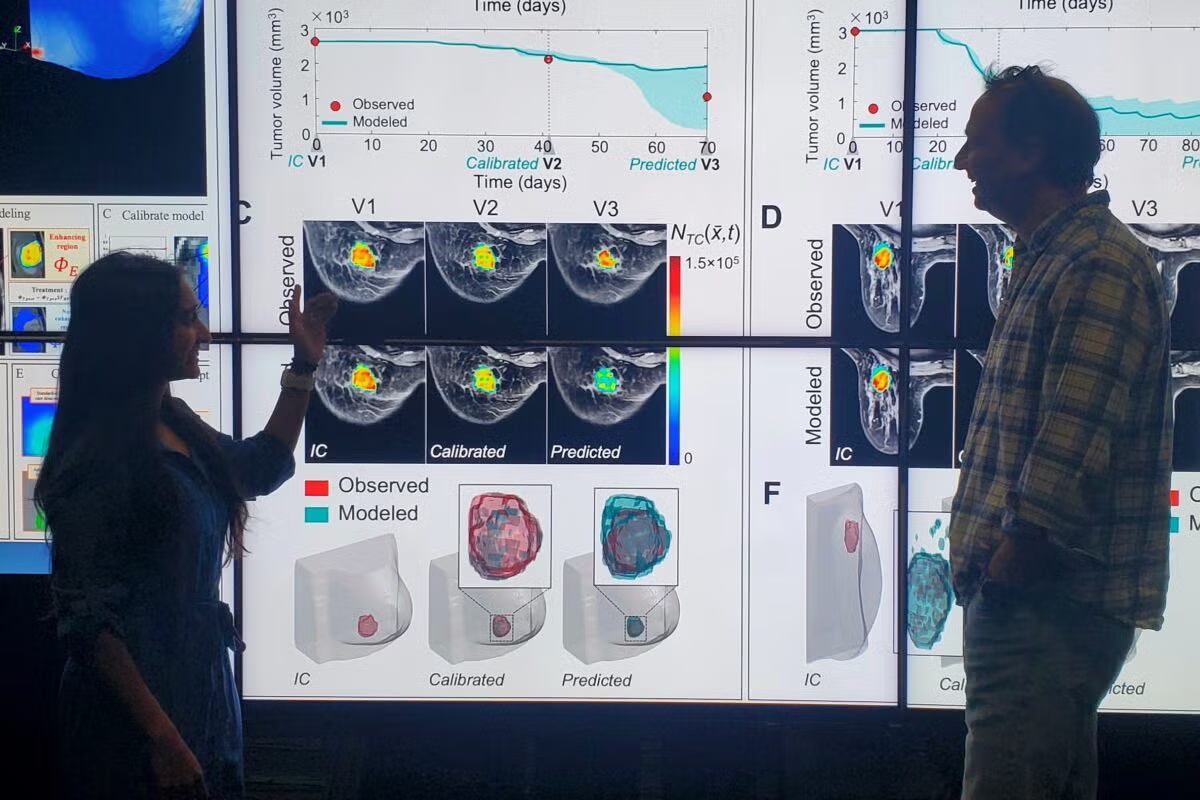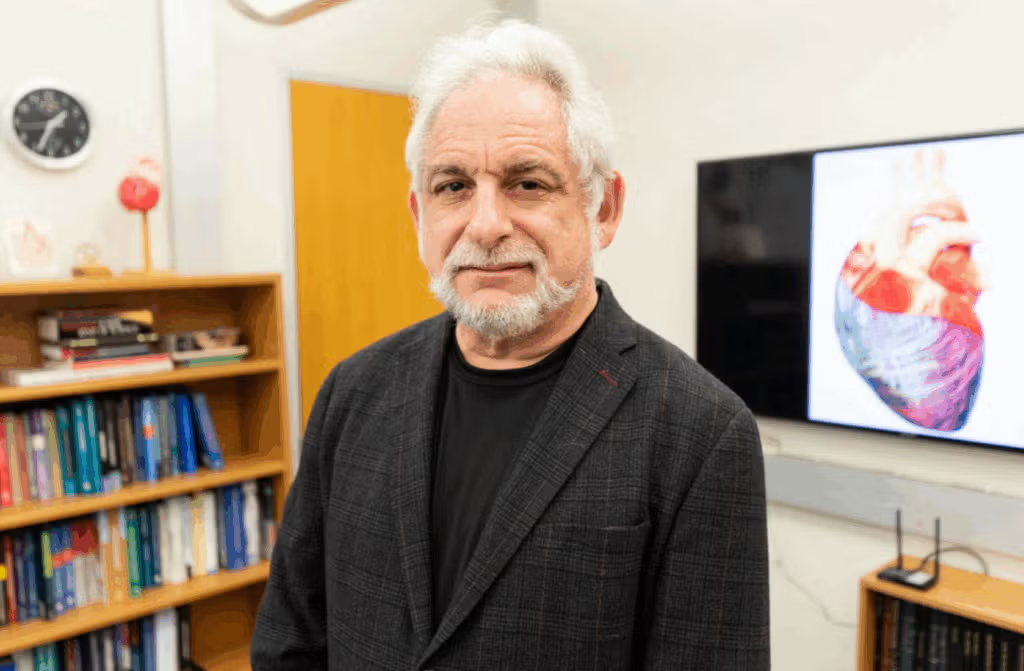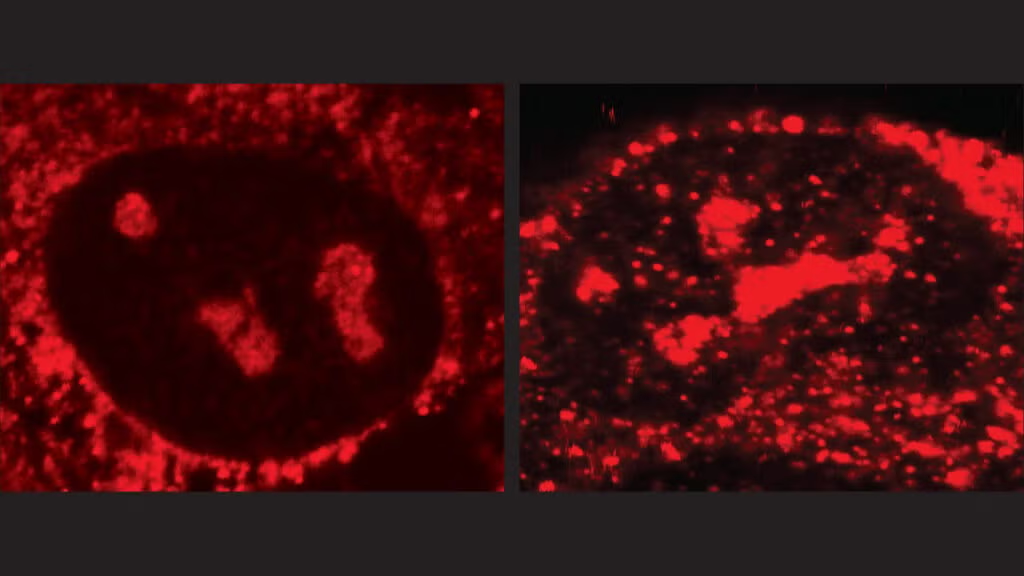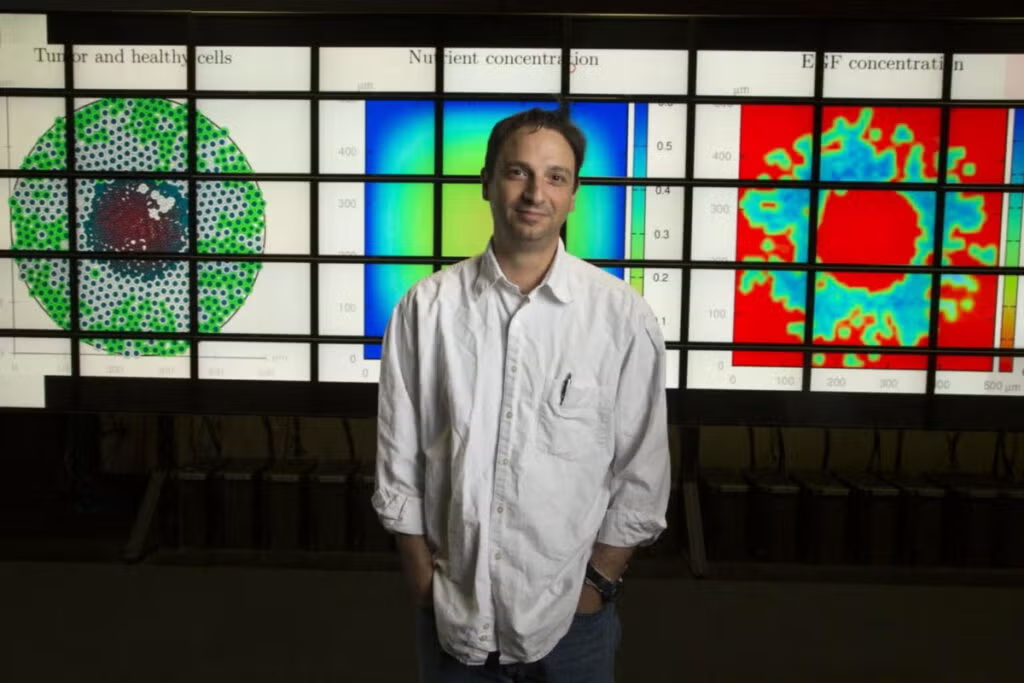Decades of scientific progress — including breakthroughs in imaging, targeted therapies and early detection — have modernized breast cancer treatment. Now, researchers at The University of Texas at Austin are studying new solutions to detect and treat even the most aggressive forms of breast cancer using data, cutting-edge technologies and collaboration across disciplines.
These innovations are only the beginning of what UT Austin researchers and physicians will accomplish together with an integrated, academic health system. The emerging UT Medical Center — anchored by Dell Medical School and strengthened by a historic partnership with MD Anderson, the nation’s #1 cancer center — will make it possible for researchers and clinicians to collaborate in even more ways to accelerate breakthroughs in research and patient care.
Powerful Proteins
Certain types of breast cancer, including inflammatory breast cancer (IBC) and triple-negative breast cancer (TNBC), remain incredibly difficult to treat. Although rare, these two very aggressive forms of the disease account for nearly half of breast cancer deaths, largely because they respond poorly to standard treatments and often develop treatment resistance over time.
UT and Houston-based MD Anderson Cancer Center have teamed up to change that. Using samples provided by MD Anderson, one of the country’s leading cancer centers, researchers across UT’s Cockrell School of Engineering, College of Natural Sciences, the Center for Biomedical Research Support, and the Oden Institute for Computational Engineering and Sciences will identify areas of weakness in IBC and TNBC cancer cells and develop new protein-based therapeutics designed to attack those vulnerable areas.




